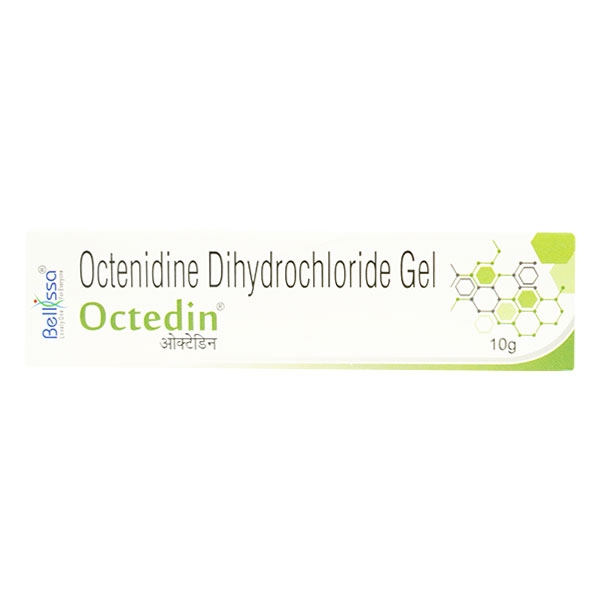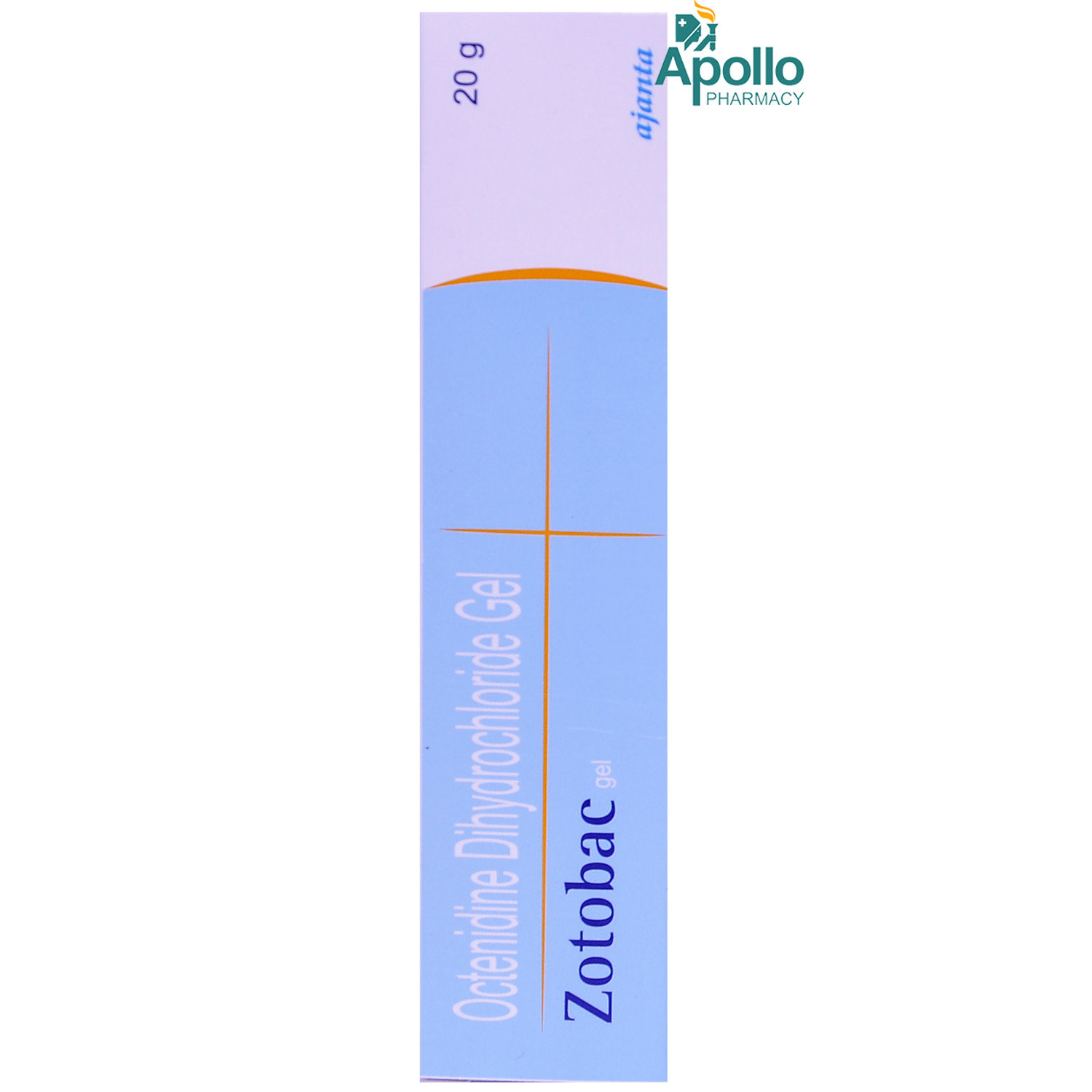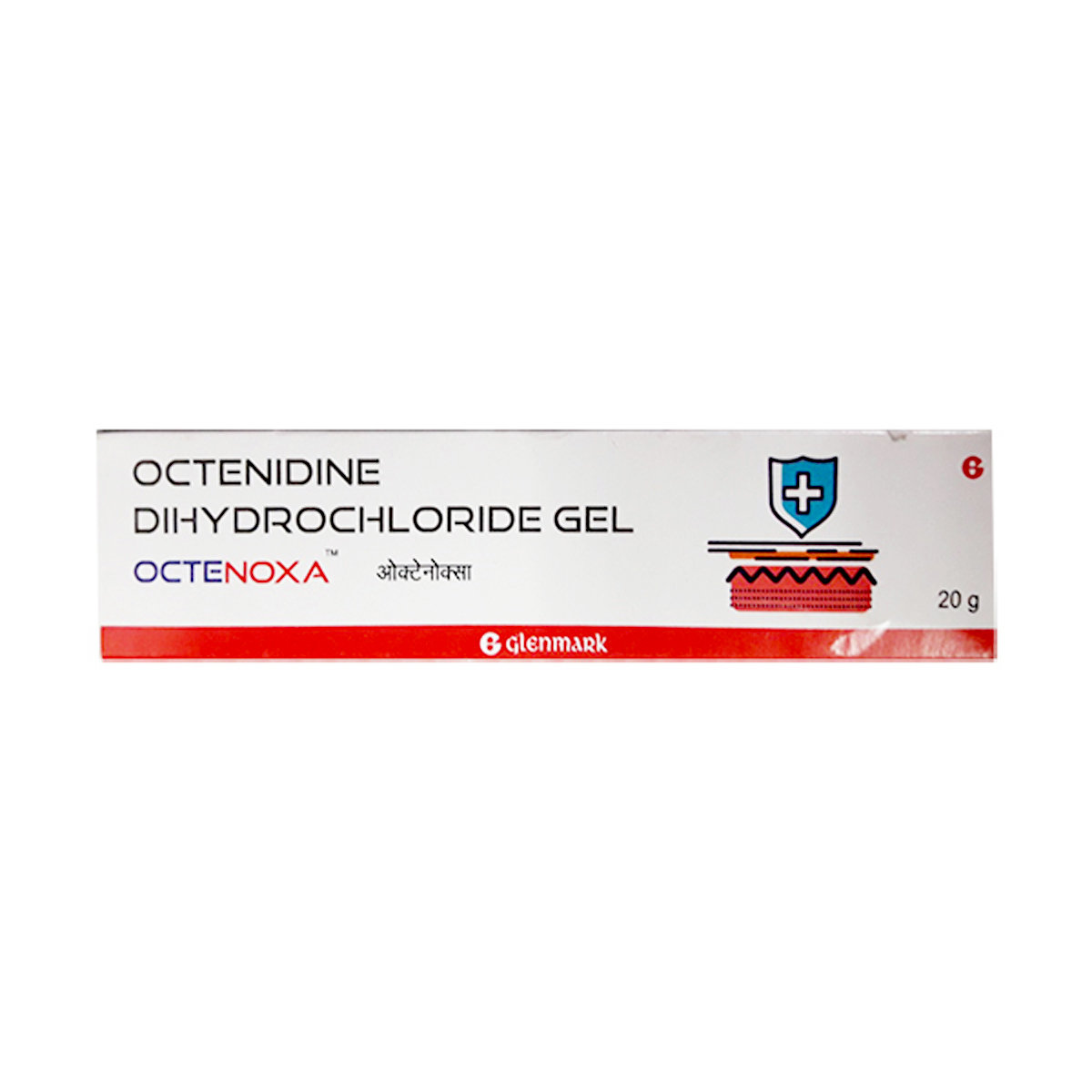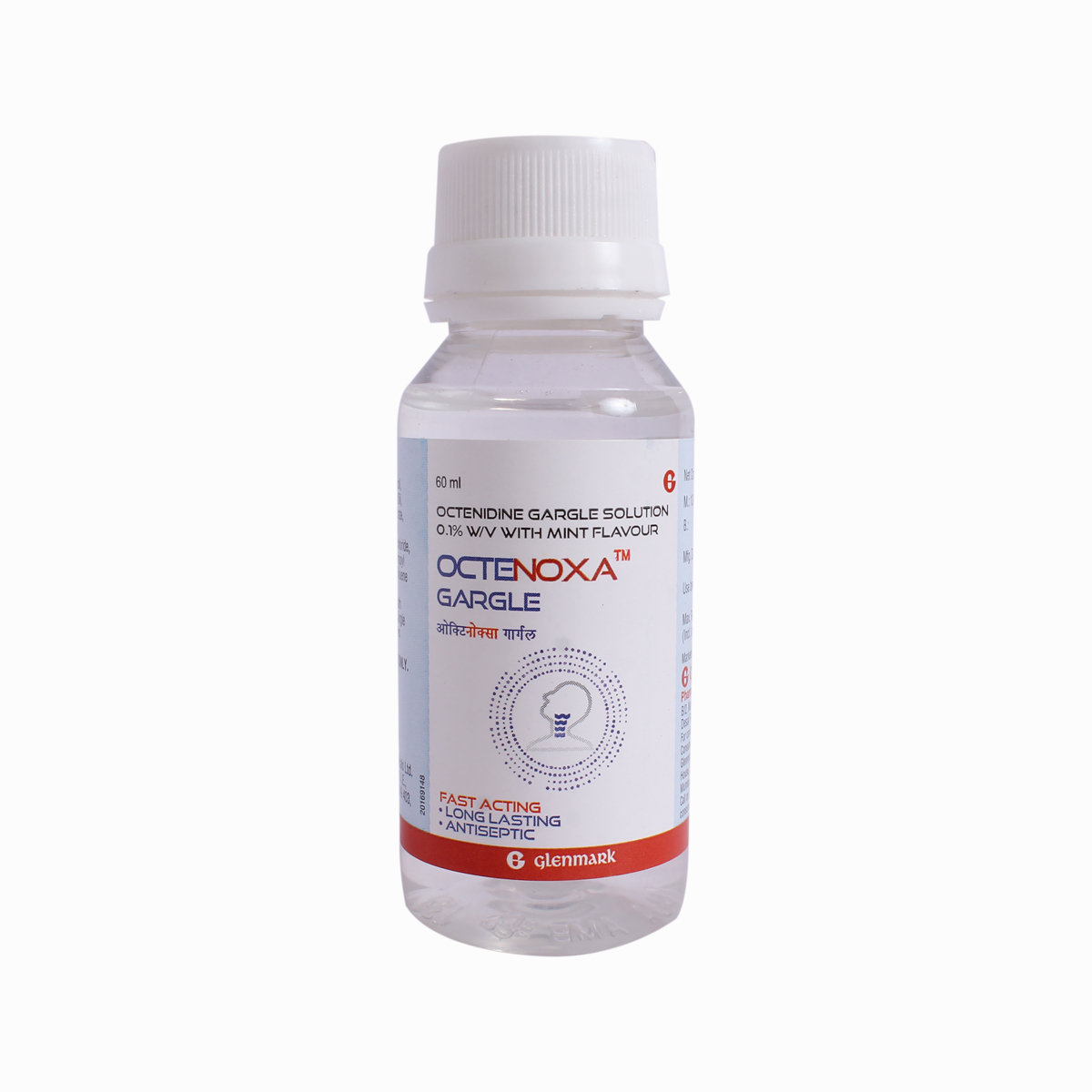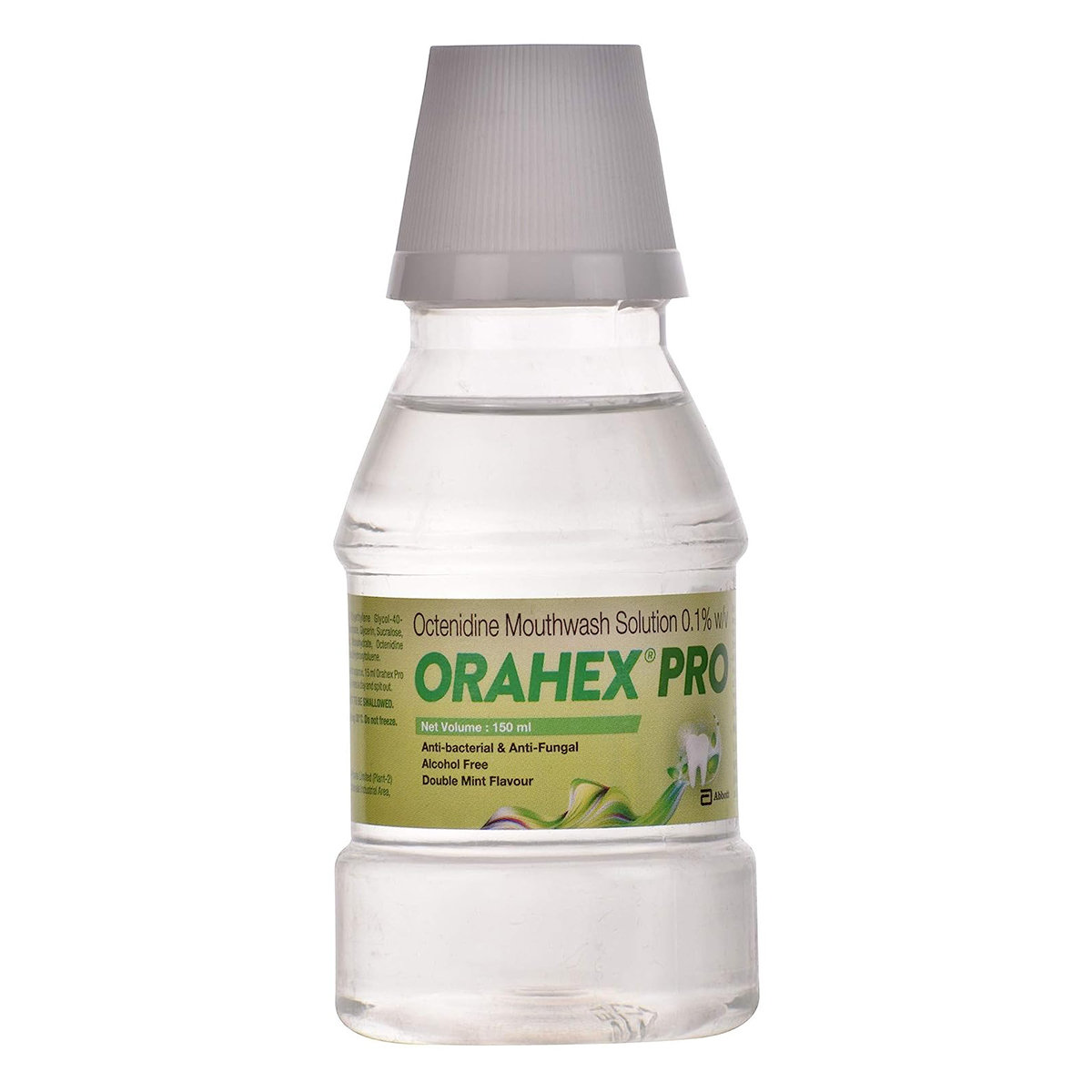Octenidine Dihydrochloride
About Octenidine Dihydrochloride
Octenidine Dihydrochloride belongs to the class of medications called 'antiseptics’, primarily used to treat and prevent bacterial skin infections. A bacterial infection is a condition in which bacteria grows in the body and cause infection. It can target any body part and multiple very quickly.
Octenidine Dihydrochloride contains octenidine. It works by inhibiting the growth of infection-causing microbes. This medicine is effective against skin infections such as impetigo (infection caused by strains of staph or strep bacteria), boils, and infected hair follicles. Also, it is used to treat skin infections in wounds, minor cuts or burns.
Octenidine Dihydrochloride is for external use only. The common side effects are application site reactions (redness, irritation or burning sensation). These side effects gradually resolve during the treatment and do not require medical attention.
Let your doctor know if you are allergic to any of the contents of this medication. Consult your doctor before using this medicine if you are pregnant or breastfeeding. Be cautious while driving and operating machinery, as it is unknown if this medication interferes with your ability to drive. This medication should not be used by children unless prescribed by a doctor.
Uses of Octenidine Dihydrochloride
Medicinal Benefits
Octenidine Dihydrochloride belongs to the class of medications called 'antiseptics’, primarily used to treat and prevent bacterial skin infections. It works by inhibiting the growth of infection-causing microbes. This medicine is effective against skin infections such as impetigo (infection caused by strains of staph or strep bacteria), boils, and infected hair follicles. Also, it is used to treat skin infections in wounds, minor cuts or burns.
Directions for Use
- Octenidine Dihydrochloride is for external use only.
- Follow your doctor's instructions on the dosage and timing of this medication.
- Clean and dry the affected skin area before applying Octenidine Dihydrochloride. Use clean and dry hands or a piece of clean cotton wool or a gauze swab to apply this medicine. Gently rub it into the skin until fully absorbed.
- Wash your hands before and after applying this medicine, unless the treatment is for hands.
- If Octenidine Dihydrochloride accidentally comes into contact with eyes, nose, or mouth, rinse with water immediately.
Storage
Side Effects of Octenidine Dihydrochloride
Itching
Redness
Burning
Irritation at the application site
Drug Warnings
Avoid applying Octenidine Dihydrochloride on sunburns, lesions, blisters, and open wounds. Let your doctor know if you plan to become pregnant or are already pregnant or a lactating mother. If you apply Octenidine Dihydrochloride to breasts or nipple for treatment, wash it off while nursing your baby. Do not swallow Octenidine Dihydrochloride. If it accidentally comes in contact with the eyes, nose or mouth rinse with water immediately. Consult your doctor immediately if any side effects persists.
Drug Interactions
Drug-Drug Interactions: Octenidine Dihydrochloride may interact with other antiseptics.
Drug-Food Interactions: No interactions found/established.
Drug-Disease Interactions: No interactions found/established.
Drug-Drug Interactions Checker List:
Safety Advice

Alcohol
cautionOctenidine Dihydrochloride does not interact with alcohol. However, you are recommended to avoid alcohol consumption while using medication.

Pregnancy
cautionPlease consult your doctor before using Octenidine Dihydrochloride if you are pregnant or planning to conceive. Your doctor will prescribe Octenidine Dihydrochloride if he/she thinks the benefits outweigh the risks.

Breast Feeding
cautionInformation regarding the use of Octenidine Dihydrochloride in breastfeeding mothers is not available. Please consult your doctor for further advice.

Driving
safe if prescribedOctenidine Dihydrochloride is generally safe to use before driving. However, if you notice any side effects, avoid driving and operating machinery until you feel better.

Liver
cautionLet your doctor know if you have any history of liver diseases before using Octenidine Dihydrochloride.

Kidney
cautionLet your doctor know if you have any history of kidney diseases before using Octenidine Dihydrochloride.

Children
safe if prescribedPlease consult the doctor. Your doctor will prescribe Octenidine Dihydrochloride depending on your child's severity of infection or wounds.
Habit Forming
Diet & Lifestyle Advise
Use mild soap while taking baths and prefer warm baths.
Always wear loose-fitting clothes to avoid further sweat and spread of skin infection.
Regularly change your socks and wash your feet. Avoid shoes that make your feet sweaty and hot.
Do not walk barefoot at places like gym showers to prevent bacterial infections.
Do not scratch the affected area of skin as it can spread the infection to other body parts.
Avoid sharing towels, combs, bedsheets, shoes, or socks with others.
Wash your bedsheets and towels regularly.
Avoid or limit the intake of alcohol and caffeine.
Manage stress, eat healthily, drink plenty of water, exercise regularly, and get plenty of sleep.
Special Advise
Do not cover the area being treated with Octenidine Dihydrochloride with a bandage, unless suggested by a doctor.
Patients Concern
Disease/Condition Glossary
Bacterial Infection: A bacterial infection is a condition in which harmful bacteria enter, multiply, and infect our body. It can target any body part and multiple very quickly. When you get infected with bacteria, you can experience generalized symptoms, like fevers, chills, and fatigue. Bacteria are of various forms comprising commonly of spherical, rod, and spiral-shaped. Bacterial infections vary from minor illnesses like sore throat and ear infections to severe brain infections like meningitis and encephalitis. Few harmful bacteria that cause infections include Streptococcus, Staphylococcus, and E. coli. Anyone can become infected with a bacterial infection. People with weak immune systems or taking immunosuppressive medicine can make them more prone to bacterial infection.
FAQs
Octenidine Dihydrochloride is used to treat bacterial skin infections.
Octenidine Dihydrochloride contains Octenidine, which has antiseptic, anti-bacterial and anti-fungal properties. It works by preventing microbe's growth by interfering with its cell wall formation. Hence, helps to treat the infection.
No, never use a larger amount than the recommended dose of Octenidine Dihydrochloride as it may lead to serious health problems that may not be reversible. So, if you feel you are not recovering, please consult your doctor and do as prescribed.
Please do not stop using Octenidine Dihydrochloride without consulting your doctor even if you find symptomatic relief as discontinuing suddenly may worsen the condition. Therefore, complete the full course as your doctor has prescribed it, and if you experience any difficulty while using, please consult your doctor.
Please consult your doctor if you are using any other topical medicines before starting Octenidine Dihydrochloride. However, it is advised to maintain a 2-3 hour gap before using two topical medications.
Octenidine Dihydrochloride should be applied with clean and dry hands on the skin's affected areas. You can also apply Octenidine Dihydrochloride with a piece of clean cotton wool or gauze swab. Gently rub the medicine into the skin until it has disappeared. Wash your hands before and after applying Octenidine Dihydrochloride on the affected areas unless the treatment is for hands.
Do not cover the area being treated with Octenidine Dihydrochloride with a bandage, unless suggested by a doctor. Avoid contact of Octenidine Dihydrochloride with eyes or mucous membrane; if it accidentally comes in contact with the eyes, nose or mouth rinse with water immediately.
If you miss a dose of Octenidine Dihydrochloride, apply it as soon as you remember. However, if it is almost time for the scheduled dose, skip the missed dose and use the next dose at the scheduled time.
The common side effects are application site reactions (redness, irritation or burning sensation). These side effects gradually resolve during the treatment and do not require medical attention.

